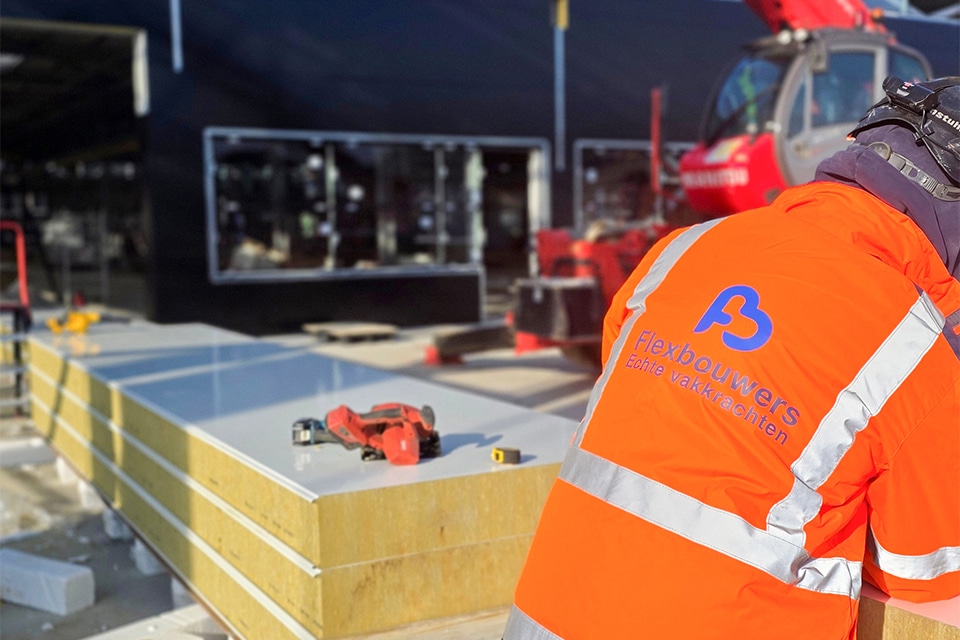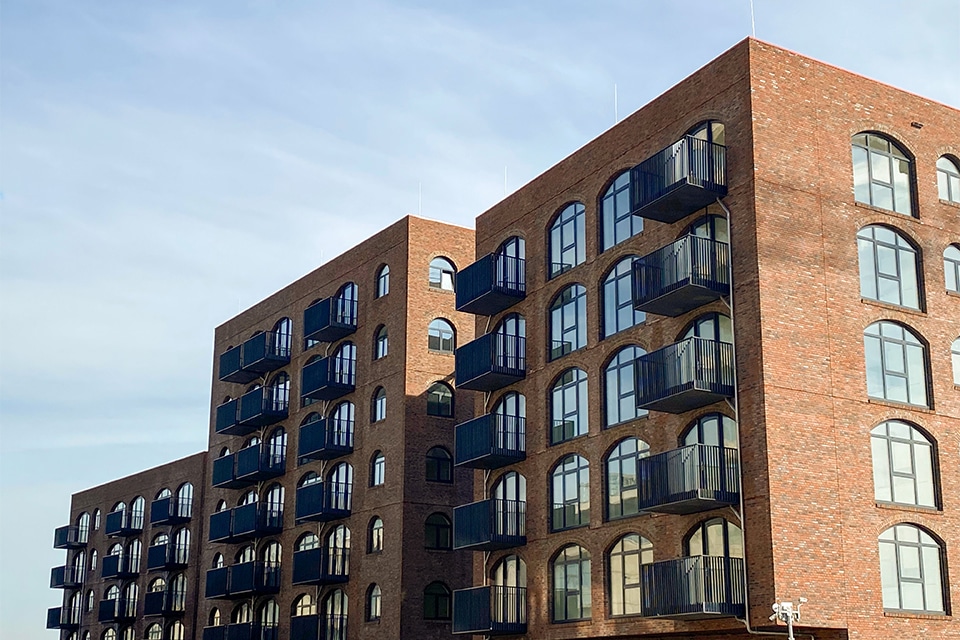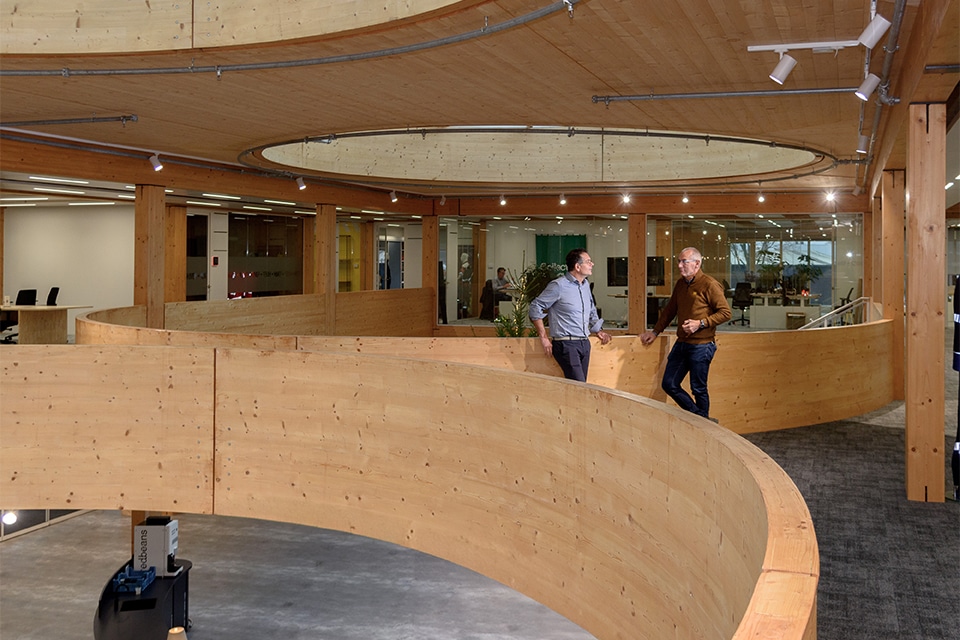
THE CONSTRUCTION AND INFRASTRUCTURE SECTOR AS THE INFRASTRUCTURE OF SOCIETY
(Interview) Philip van Nieuwenhuizen, Chairman MKB Infra and president European Builders Conference (EBC)
Construction and engineering companies have faced many developments in recent years. After two years of corona crisis, the conflict in Ukraine quickly caused far-reaching consequences for SMEs and the industry in general. Think of the rising energy and raw material prices, the ongoing personnel shortage and the energy transition. All the more reason for Velox to talk to Philip van Nieuwenhuizen, chairman of MKB INFRA and also president of EBC, the European Builders Confederation. What role do SMEs have in this complex European playing field? What developments are underway? And what opportunities does Van Nieuwenhuizen see when it comes to the above challenges?
Even in his youth, Philip van Nieuwenhuizen was always on the construction site. His father had a contracting company with his brothers, and he walked along as a young boy. "I hope the labor inspectorate won't read this..." he says jokingly. "But from the age of 12 I did vacation work on construction and later, when study weeks were released to study for exams, I could always be found on construction because I loved it so much. And still now... When I visit one of our members and walk around a construction site, those machines continue to fascinate me.''
He eventually went on to study Ethnographic Law and thus seemed to say goodbye to construction. But blood runs where it cannot go. Van Nieuwenhuizen was unlucky that his internship at the United Nations fell through. By chance, his resume ended up at the WAC, a trade association that dealt with regulation and competition in the construction market until it was banned by the EU. "Then I came into contact with all kinds of European institutions and it was all so fascinating that I stuck in that and never pursued the ambition of working at the United Nations again.
Meanwhile, Van Nieuwenhuizen is president and director of MKB INFRA, an association of SMEs in the infrastructure sector. He is also president of EBC, the European Builders Confederation, a European trade association representing the interests of craftsmen, micro, small and medium-sized construction companies in Europe.
Prosperity and well-being
When asked why this sector fascinates him so much, he has a clear answer.
"In both construction and infrastructure, there is permanent creation. Creation of basic conditions for life as we know it. If you compare this to a developing country where the construction industry and facilities are nowhere near this level and you have open sewers and draughty houses, this is of course totally different in the Netherlands and often in Europe. When we talk about infrastructure here, we are talking about the basic conditions of our prosperity and well-being. If we did not have sewers and water purification, we still struggled with all kinds of diseases and did not get as old. If we didn't have dikes, half the Netherlands would have been wiped out. If we didn't have roads, there was no social connection, and if we didn't have cables underground, we couldn't work from home. When you want to build a house or building, first you have to connect it to utilities and you need infrastructure. Then you have to put houses and buildings on it, these are inseparable conditions for the proper functioning of our society. In our industry, we are constantly creating those conditions, and they are never the same. That's what makes it so fascinating.''
New legislations
With new legislation, EBC monitors from the beginning what is coming at you as an entrepreneur and how all the National organizations stand on it. "Visions arise from different cultures and we bring them together into one vision of our European federation. We bring that together to the European Commission, which happens at various directorates.''
As an example, take the Corporate Sustainability Reporting Directive (CSRD) legislation that takes effect in 2023. This directive requires organizations to report on the environmental and social impact of their business activities. "Now, for smaller organizations, this doesn't seem so important. But I can't imagine that if you work as a subcontractor, plasterer or concrete-laying contractor for Heijmans or KWS, you won't have to adopt a sustainability policy in the future. These (larger) organizations will soon all have to report this. Moreover, almost every company has to deal with a bank, if only because your payments do not necessarily run parallel to the performance you deliver and you therefore occasionally need finance to pay salaries. Banks are already directly subject to that reporting requirement. That's something you as a (sub)contractor should already be aware of. We are committed to small business owners to keep this kind of thing workable.''
The value of SMEs
Van Nieuwenhuizen believes that SME entrepreneurship is a valuable addition to the economy in general, but also to society in particular. "Not even so much at the economic level, where SMEs represent regional employment, but if you look at what is done by SMEs in terms of, for example, sponsoring local sports clubs or making equipment available when there are activities, such as drop-offs at Sinterklaas parties, that is really huge. These are all things that are done by SMEs. They do this despite the fact that these are busy people who have to work hard. They make an essential contribution to the local and regional social scene. I think you have to cherish that.''
Growth in SMEs
Regularly in recent years, Van Nieuwenhuizen has read various studies saying that SMEs need to grow and that business can only survive if there is growth. "I absolutely disagree with that. Maybe SMEs' overall share of the economy should grow. But I see SMBs get to a point where they say, 'If I have to grow now, I won't be able to control it anymore and I won't be able to have the flexibility and deliver the quality.' At a plasterer, this point might be reached with four men and at a road construction company with forty men, but that characteristic deserves defense and I continue to lobby for it. I try to give substance to it as much as I can, without setting myself off directly against big business, because you need that too!''
European developments in the construction industry
Because EBC operates at the European level, Van Nieuwenhuizen has a complete picture of developments in the construction sector at the European level. He indicates that the role of SMEs in this is crucial. "I see that the construction and infrastructure sector is very much needed in this. If you want to achieve the task in the field of sustainability, we need all the hands and there is already an extreme shortage of them. Do you want to achieve the climate goals, such as emissions, sustainability and less use of raw materials and energy? Then you need that whole sector desperately.''
Difference in sustainability policies
In the Netherlands we are slowly beginning to realize that we also have to do things as individuals. But there are also southern countries that say, 'Why isolate? Let them start in those northern countries first.'
Sustainability in a country like Italy also means something completely different. When it comes to sustainability, for example, they want to make sure that when the weather starts to shake their buildings stay upright. It is then our role as EBC, in cooperation with the European commission, to organize things to encourage this more anyway and address problems like shortages and sustainability.''
Using measures
He also sees that when resources and measures are then introduced in Europe and the Netherlands makes little use of them. "If you look at the list of measures that the European Commission realized in the context of the Ukraine crisis and the state aid and business support that is possible as a result, and which the Netherlands then makes use of, it is to cry. Why this is? Perhaps the Calvinist slant in which one thinks: it's all taxpayer money, we're not going to support or borrow? These are, of course, political considerations. Perhaps this is also a piece of ignorance. The state aid frameworks have widened enormously and I think that too little use is being made of them in the Netherlands. We have a member company, which normally runs a two-million euro net margin. Now they have fourmillion in additional costs due to price increases outstanding that they don't get paid. That may be okay this year, but if it is still this way next year, the bank will pull the plug. Then we will have lost the capacity of this company. But more importantly, the financial crisis has taught us that if you're out on the street, you're going to look for other work and less than 30 percent will come back into the industry. Also consider government clients, such as municipalities. Money is not sloshing over the skirting boards everywhere. They have lost a lot of tourist tax and parking tax revenue because of corona, and now they don't have enough money to keep public spaces in order. That's where something needs to be done. Make sure principals have and continue to have adequate budgets.''
Construction and infrastructure sector shortages
When it comes to the major personnel shortages, Van Nieuwenhuizen says EBC sees part of the solution in a "one stop shop" formula for renovation. "If someone wants to renovate something, they can go through to the European commission-supported 'one-stop shops.' They refer you to the right counters and help apply for what you need, such as permits and financing. They give advice and then get qualified companies to come and do the work. With that, you slowly move toward standardization. And standardization is an accelerator. That way you minimize administrative actions and also create capacity. Just arranging more hands is not realistic, but this way you can do things more efficiently and smarter.''
According to Velox
The right talent at the right time is a key success factor and prevents high failure costs and delays on projects. With good pre-selection, we make the difference. For this rapidly changing construction world, a broad flexible pool of well-trained, skilled and driven middle and senior construction and engineering professionals is an important success factor.
Industry awareness
There is also much to be gained by the companies themselves by creating awareness that a transition is underway. "It is important that people are not only concerned with the delusion of the day, but also with the further future. We have a big role in that as an advocacy organization. But the moment the members don't go along with that, we can do what we want, but it doesn't work. To put it very harshly, we have to be able to say from time to time, 'If you don't start thinking about making your own business more sustainable, and that's not just about using sustainable materials but mainly about the business climate, you won't exist in ten years' time.'
Meaningful business
In conclusion, Van Nieuwenhuizen once again emphasized the role of the construction and infrastructure sector as a basic condition for society to function. It is a complex playing field in which shortages, sustainability and digitalization are crucial challenges that we all have to deal with. "Even without inflation, you would have to ask yourself whether, as a taxpayer, you are actually opting for a policy in which works are always brought to the market on the basis of unbridled competition, ultimately realizing them for the lowest price. But does this really have the effect of ensuring that companies in the industry can continue to deliver quality? This week I was at work and maintenance was being done on the water and electricity grid. Only then do you notice how dependent you are as an individual on these kinds of facilities. My credo: Keep this in order and spend a little more money on it. Money, by the way, is not the goal in this case, but the means to keep doing meaningful business and also to keep delivering quality. Both in housing and infrastructure!''
This article previously appeared in the Velox Magazine
Heeft u vragen over dit artikel, project of product?
Neem dan rechtstreeks contact op met Velox.
 Contact opnemen
Contact opnemen




